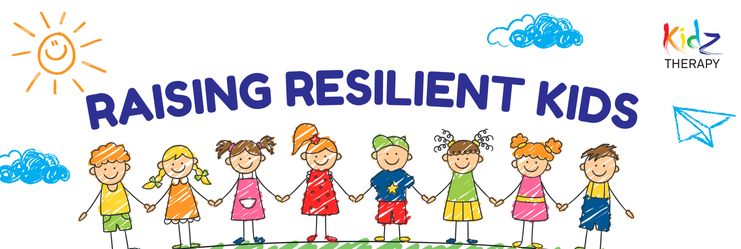Blog
Life isn’t always smooth sailing and that’s okay! One of the greatest gifts we can give our children is the ability to bounce back, adapt, and thrive in the face of challenges. That’s what resilience is all about.

Helping Your Child Build Resilience – 1 Step at a Time
We know that resilience isn’t something kids are born with, it’s something they learn. And the good news? You play a powerful role in helping them build it. We’ve put together six practical strategies to help you raise resilient kids. These are easy to implement, backed by research, and designed to fit into everyday life.
1. Foster Strong Connections
Children flourish when they feel safe, loved, and truly seen. Building strong emotional connections doesn’t require grand gestures—it’s often the small, everyday moments that matter most. A cuddle before bed, a chat in the car after school, or a shared laugh around the dinner table can create a sense of security and belonging. These moments of connection help children feel supported and valued, laying the foundation for resilience and emotional well-being.
- Daily Check-Ins: Ask your child about the best and hardest parts of their day.
- One-on-One Time: Schedule regular moments just for them, even 10 minutes of undivided attention can make a big difference.
- Family Rituals: Create simple routines like bedtime stories, weekend walks, or shared meals to build connection.
2. Encourage Problem-Solving
When challenges arise, it can be tempting to step in and fix things for your child, but guiding them to find their own solutions builds confidence and resilience.
- Use “What If” Questions: Help your child explore different outcomes and solutions.
- Break It Down: Teach them to tackle problems step-by-step instead of feeling overwhelmed.
- Role Play: Practice tricky situations (like asking for help or dealing with conflict) through pretend play
3. Model Positive Self-Talk
Children absorb the way we speak, not just to them, but to ourselves. By modeling encouraging and compassionate self-talk, we teach them how to approach challenges with a growth mindset.
- Narrate Your Thinking: Say things like, “I’m feeling frustrated, but I know I can figure this out.”
- Reframe Mistakes: Turn “I can’t do this” into “I can’t do this yet.”
- Use Affirmations: Create a list of empowering phrases and say them together each morning.
4. Teach Coping Skills
Resilient kids aren’t born knowing how to manage stress, they learn it through practice. Help your child build a toolbox of coping strategies they can turn to when emotions run high. This might include deep breathing, drawing, going for a walk, or talking things through. The key is to explore and practice these techniques together when things are calm, so they’re ready and familiar when needed. These tools empower children to regulate their emotions and bounce back from challenges.
- Create a Calm Corner: A cozy space with sensory items, books, or drawing supplies for emotional regulation.
- Practice Breathing Together: Try “bubble breathing” or “smell the flower, blow out the candle.”
- Movement Breaks: Use dancing, stretching, or outdoor play to release tension.
5. Set Realistic Expectations
Perfection isn’t the goal, progress is. Let your child know that mistakes are part of learning and growth. By focusing on effort rather than outcomes, you help them develop perseverance and self-worth that isn’t tied to achievement.
- Praise Effort: Say, “I’m proud of how hard you worked,” instead of focusing on results.
- Normalize Mistakes: Share stories of your own setbacks and what you learned.
- Use Growth Charts: Track progress visually to celebrate small wins over time.
6. Be Their Safe Base
Children need to know they can come to you, no matter what. When you offer a safe, non-judgmental space, they’re more likely to take healthy risks, explore new ideas, and learn from their mistakes. Your presence and acceptance give them the courage to face life’s ups and downs with confidence.
- Listen Without Fixing: Let them talk without jumping in with solutions right away.
- Validate Feelings: Say, “It’s okay to feel upset. I’m here with you.”
- Stay Consistent: Keep routines and boundaries predictable to help them feel secure.
You've got this - AND So Do They
Building resilience is a journey, not a destination. Every moment you spend encouraging, listening, and guiding your child helps shape their ability to thrive.


